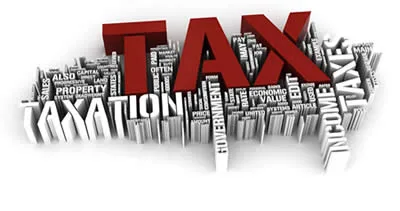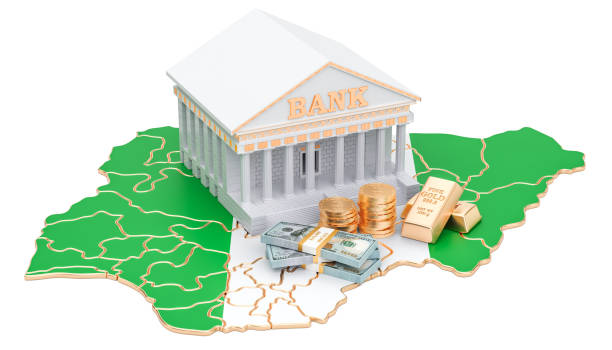Decoding the Tax Reform Bills
For many Nigerians, tax laws often seem complex and detached from daily life. However, the newly proposed Tax Reform Bills could change this perception. These bills, introduced by President Bola Ahmed Tinubu and presented by the Senate Leader, Michael Opeyemi Bamidele, aim to overhaul the tax system, focusing on fairness, efficiency, and inclusivity.
This is a critical move to simplify our tax landscape and reduce the financial pressures on small businesses, Bamidele said during the Senates second reading. The proposed changes promise significant benefits for ordinary Nigerians, but understanding their implications is essential.
With public debates raging, its clear that this reform is not just about numbers but about reshaping the way Nigerians relate to taxation.
To better grasp the reforms, Prime BusinessAfrica spoke to three experts who shed light on what these bills mean for citizens.
Making Taxes Work for Everyone
At the heart of the reform lies a commitment to ease the burden on low-income earners and small businesses. One key proposal exempts individuals earning below the minimum wage from paying taxes. Similarly, businesses with an annual turnover of N50 million or less will also enjoy tax relief.
According to a tax expert,Taiwo Adeyemi, a member of the Chartered Institute of Taxation of Nigeria, This exemption is monumental. For a country like Nigeria, where poverty levels are high, this move ensures that taxation doesnt penalise survival. It’s a step toward fairness.
He added that the proposed reduction in corporate tax ratesfrom 30% to 25% over the next two yearswill encourage investment and business growth. Lower taxes mean businesses can expand and create more jobs, Adeyemi said.
Simplifying and Streamlining the System
One of the most significant challenges in Nigerias current tax regime is its complexity. Multiple layers of taxes often confuse taxpayers and lead to unintentional non-compliance.
The Group Managing Director, Plural Group, Mr. Aremo Adeleke, pointed out that the Nigeria Tax Administration Bill aims to harmonise tax rules across federal, state, and local levels. This is long overdue. A streamlined system will not only reduce compliance costs but also foster transparency, he explained.
The introduction of the Nigeria Revenue Service (NRS), which will replace the Federal Inland Revenue Service (FIRS), is another critical aspect of the reform. This central agency will oversee tax collection nationwide, ensuring accountability and efficiency.
This is about modernising how taxes are collected, the former chairman of Oyo State Internal Revenue service (OYSIRS) remarked. Its not just about improving revenue but also about restoring trust in the system.
Redistribution of Revenue: Fair Play or Controversy?
A notable change proposed by the bills is the shift in the distribution of Value-Added Tax (VAT) revenue. Under the new system, VAT will be allocated based on consumption within states rather than pooled centrally for redistribution.
This is a fairer system, said Adebayo Onifade, a policy analyst. States like Lagos, which generate the most VAT, will receive a larger share of what they contribute. Its a way of aligning revenue with economic activity.
However, Onifade cautioned that this could spark tensions between states with differing levels of economic activity. The government must ensure that no state feels shortchanged. Collaboration between federal and state governments will be key to smooth implementation, he emphasized.
Empowering the Underserved
The reform also seeks to empower low-income earners and small businesses by eliminating double taxation and simplifying compliance. For example, a new Joint Revenue Board will replace the current Joint Tax Board, focusing on protecting taxpayer rights and resolving disputes.
This reform isnt just about numbers; its about humanizing the tax system, said Adeyemi. People should feel that their taxes are contributing to their welfare, not just funding bureaucratic inefficiencies.
To further encourage private-sector investment, the reforms propose tax breaks for industries like gas production and a gradual VAT increase that excludes essential goods like food and medicine. These measures are designed to balance revenue generation with economic growth.
The Road Ahead: Challenges and Opportunities
While the benefits are clear, implementing the Tax Reform Bills will require robust public engagement and clear communication. As Mr Adeleke noted, People fear what they dont understand. The government must simplify its messaging and involve stakeholders at every level.
Adeyemi echoed this sentiment, adding that the success of these reforms hinges on transparency. Tax evasion is rampant because people feel disconnected from the system. If citizens see tangible benefits, compliance will improve naturally.
A Transformative Vision
The Tax Reform Bills represent a bold vision for Nigerias future. By addressing long-standing issues of inequity, complexity, and inefficiency, they have the potential to transform not just the tax landscape but also the nations economic trajectory.
This is a once-in-a-generation opportunity to reset the tax system, Onifade concluded. If implemented effectively, these reforms can uplift millions of Nigerians and create a fairer, more inclusive society.
The journey toward passing these reforms has only begun, but the possibilities they promise could redefine how Nigerians perceive and engage with their tax system. The question now is: will the government seize this moment to deliver lasting change?
Emmanuel Ochayi is a journalist. He is a graduate of the University of Lagos, School of first choice and the nations pride. Emmanuel is keen on exploring writing angles in different areas, including Business, climate change, politics, Education, and others.


















Follow Us